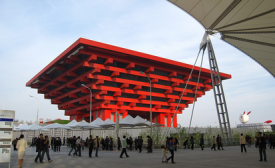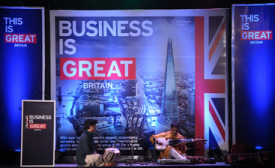nation branding
In my new book, “Shaping China’s Global Imagination: Branding Nations at the World Expo,” I explore the idea of nation branding—what it is and how it works—through the instructive case of the Shanghai World Expo. Despite the growing interest in how countries promote their national image, the potential and role of branding in a nation’s communication has often been assumed but not demonstrated.

In my new book, “Shaping China’s Global Imagination: Branding Nations at the World Expo,” I explore the idea of nation branding—what it is and how it works—through the instructive case of the Shanghai World Expo. Despite the growing interest in how countries promote their national image, the potential and role of branding in a nation’s communication has often been assumed but not demonstrated. This book reflects an effort to provide conceptual clarity and empirical attention to this very issue.
Shiva Keshavan, India’s most prominent Winter Olympics athlete, has no personal coach, funds his training largely with private donations and built his luge sled in his garage. Because India has no luge track, he often trains on wheels, shooting down winding Himalayan roads dodging goats and noisy trucks.
This Thursday (23.01), after meeting with the FIFA President Joseph Blatter, at the organisation’s headquarters in Zurich (Switzerland), President Dilma Rousseff stated that Brazil is ready to stage the “World Cup of World Cups”. During the meeting, interventions against racism and discrimination were discussed, as well as actions aimed at promoting peace and female football.
The 24/7 Olympic news cycle is consumed right now, and understandably, with security issues for the forthcoming Winter Games in Sochi. Then, too, there are the construction woes over the 2016 Summer Games in Rio de Janeiro, where the International Olympic Committee president, Thomas Bach, is paying a visit this week.
Surrounded by samba music, residents of the Metro Mangueira favela were celebrating after a week of conflict. The small community is located next to the Mangueira favela, where 18,000 people live and is the headquarters of "Estacao Primeira de Mangueira", a famous samba school, where musicians like Jamelao and Cartola composed and played.

LONDON --- If Apple, Disney, Coca Cola, and other corporate giants benefit from their carefully nurtured brands, why shouldn’t nations do the same? “Branding” is a fashionable tool on which some public diplomats rely heavily…perhaps too heavily.
Helping global publics associate a country with nice things may be useful, but emphasizing a brand for a country can be self-defeating. A nation is not a soft drink, and public diplomacy planners will find themselves getting little return on their efforts if they are satisfied with mere imagery.
This year’s World Cup final will be played at Brazil’s iconic Maracana stadium, a venue that is in many ways a beacon of power, strength, and an illustrious history. But it’s also a reminder of darkness, disappointment and failure. Lying in the imposing shadow of the Maracana is the slum area of Favela do Metro.







